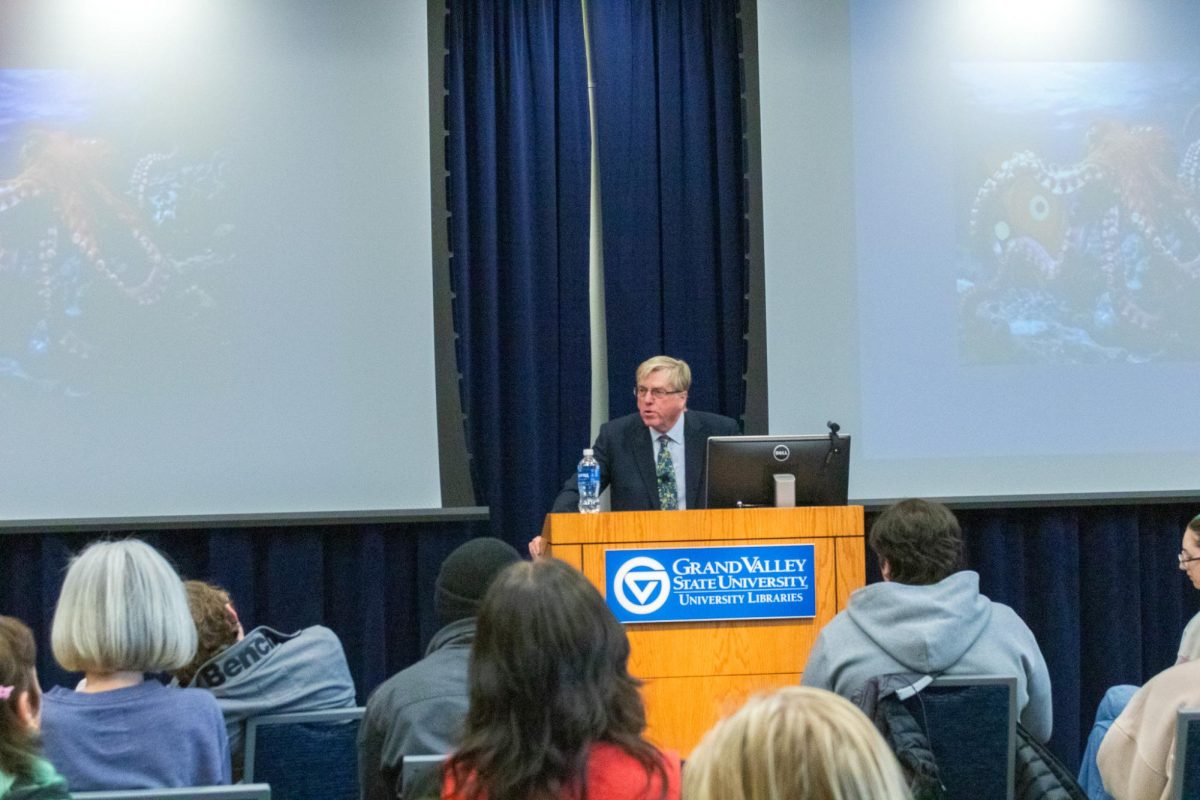Rising above the rubble
Dec 7, 2016
Ibtisam Matta woke up at 5:40 a.m. this morning. She packed her backpack with books, notebooks, pencils and pens and left by 6 a.m. to make it to the gym before the start of her day. In all aspects, she’s the average college student. She does her homework, reads most of her assigned materials and has a part-time job.
A few months ago, her schedule looked very different.
This summer, Matta spent three weeks of her vacation volunteering to help Syrian children in informal settlements in the neighboring country of Lebanon.
During her time as a volunteer through Salam LADC, a local Lebanese non-governmental organization (NGO), Matta worked with children of Syrian refugees to teach them preliminary English skills before they attended public school. In addition to providing educational tools, Matta and her group of volunteers helped with education, health, livestock, food distribution and clothing distribution for refugees in need.
In order to accommodate for the constant influx in Syrian refugees in neighboring countries, there is an extreme need for volunteers and resources. That’s where Matta, and those like Matta, have stepped in.
“It’s a very flexible NGO,” Matta said. “A lot of NGOs over there have specific things they are geared toward, but Salam tries to be flexible with what kind of aid they give to accommodate for what people need, especially medically.”
But before volunteers, before informal settlements were formed to support refugees, Syria was, and is, a country in chaos, battling through a civil war.
In March of 2011, pro-democracy protests erupted in the southwestern Syrian city of Deraa. Students had been arrested and tortured for painting revolutionary symbols on a school wall. Security forces responded by opening fire on demonstrators.
Since 2011, more than 11.5 percent of Syria’s pre-war population has been wounded or killed, according to the Syrian Center for Policy Research. Those remaining behind Syrian borders have been left looking for alternative housing options.
According to the United Nations High Commissioner for Refugees (UNHCR), 4.8 million Syrians have fled to Turkey, Lebanon, Jordan, Egypt and Iraq, and 6.6 million are internally displaced within Syria. Meanwhile, about one million have requested asylum in Europe.
One of the places refugees have fled to is the Beqaa Valley, the place of an informal settlement for Syrian, Palestinian and Lebanese families in need that Matta spent her time at.
It was there Matta was exposed to the true resilience of children of war.
“People have this image of refugees as sad and hopeless, with nothing, but every time I would work with these children they were so happy and excited to be there,” Matta said. “They’re so happy and so full of hope. They’re not downtrodden. They’re alive and vibrant and living this life.”
This undying hope among those who have been through so much is a concept Matta has brought back to her career at GVSU, she said. As a third-year student in GVSU’s nursing program, Matta’s volunteer work has given her invaluable real-life experiences to apply to her future career path.
“I’m more motivated now. This is what I want to do when I become a nurse,” Matta said. “I want to help those who are vulnerable in the Middle East. This whole thing has shown me how important the education process has been to this experience and to my future.”
Right now, Matta is fundraising for the opportunity to return to Lebanon to help with the winterization process of some of the informal settlement camps she worked with this summer. During this trip, Matta will assist with purchasing local goods like blankets and tents for camps before the winter weather hits the refugees.
Matta’s involvement in this cause came as no surprise to her family, especially her sister Laran Matta, a 2012 GVSU alumna with a nursing degree.
“Ever since she was a little girl, she knew the importance of a hug and was always searching for those individuals who could benefit from some extra attention and love,” Laran Matta said. “Her time here was spent working hard, and also spreading her love for all people, regardless of race, religion or ideals. She thrives in these work environments and never loses sight of the main goal.”
This experience has also impacted the way Matta views the issue of refugees coming to the U.S., a hot topic in the current presidential debates. Matta hopes her experience speaks to the hope of Syrian refugees.
“I have always wanted refugees to be brought in if we can and have that possibility,” Matta said. “Looking past the fear that you don’t always get good eggs, the end result that is helping a community of people in need is a much better alternative.”
She also hopes that she can share her involvement with those in her academic and professional career to change the stereotypes surrounding refugees.
“(Refugees) are people, and I feel like sometimes we forget that,” Matta said. “We see them as just refugees and label them as that instead of thinking of them as fathers, brothers, mothers and children.”






















